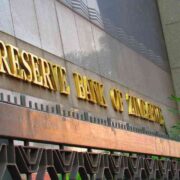The financial landscape is undergoing a big shift, driven by the growing demand for seamless, secure, and accessible digital solutions. Customers today expect more than just traditional banking, they want integrated ecosystems that bridge the gap between physical and digital experiences.
Banks like the ZB Financial Holdings bank are leading the initiative with the recent launch of the ZB Mastercard, a collaboration between ZB Financial Holdings and Mastercard, which according to ZB Bank CEO Elisha Chibvuri, promises to redefine how businesses and individuals interact with financial services.
By Gamuchirai Mapako
The modern consumer prioritises convenience, speed, and flexibility. Gone are the days when physical cards and in-person transactions were the norm. Today, digital wallets, QR codes, and cardless payments dominate the scene, catering to a global audience that thrives on mobility. The launch of the ZB Mastercard suite that comprises five tailored products for students, SMEs, cross-border traders, and executives demonstrates Zimbabwean financial sector’s keen understanding of these diverse needs.
Several financial institutions keeping up with technology now have E-commerce integration, QR code payments and global accessibility.
This suite isn’t just about technology; it’s about creating a setup where every stakeholder from small business owners to international travellers finds value.
The future of banking lies in systems that connect merchants, customers, and financial institutions seamlessly. Thus several banks are positioning themselves as facilitators of global commerce. Through digital platforms, they empower users to manage finances via mobile apps, ensuring security and ease of use.
For instance, a student in Zimbabwe can pay for online courses abroad, while an SME owner can import goods and settle invoices digitally all without stepping into a bank. Such capabilities underscore the transformative power of digital banking solutions in bridging economic gaps and fostering inclusivity.
However, with great convenience also comes the need for robust security. The ZB Mastercard for example emphasises advanced security features, ensuring that customers can transact online with confidence. From encryption protocols to real-time fraud monitoring, these measures are critical in maintaining trust, a cornerstone of any successful digital banking initiative.
As digital adoption accelerates, financial institutions must continue innovating to stay ahead. Whether it’s enabling cross-border trade or simplifying everyday payments, the focus remains on delivering value through technology.
The convergence of physical and digital banking is no longer a trend but a necessity.














Comments